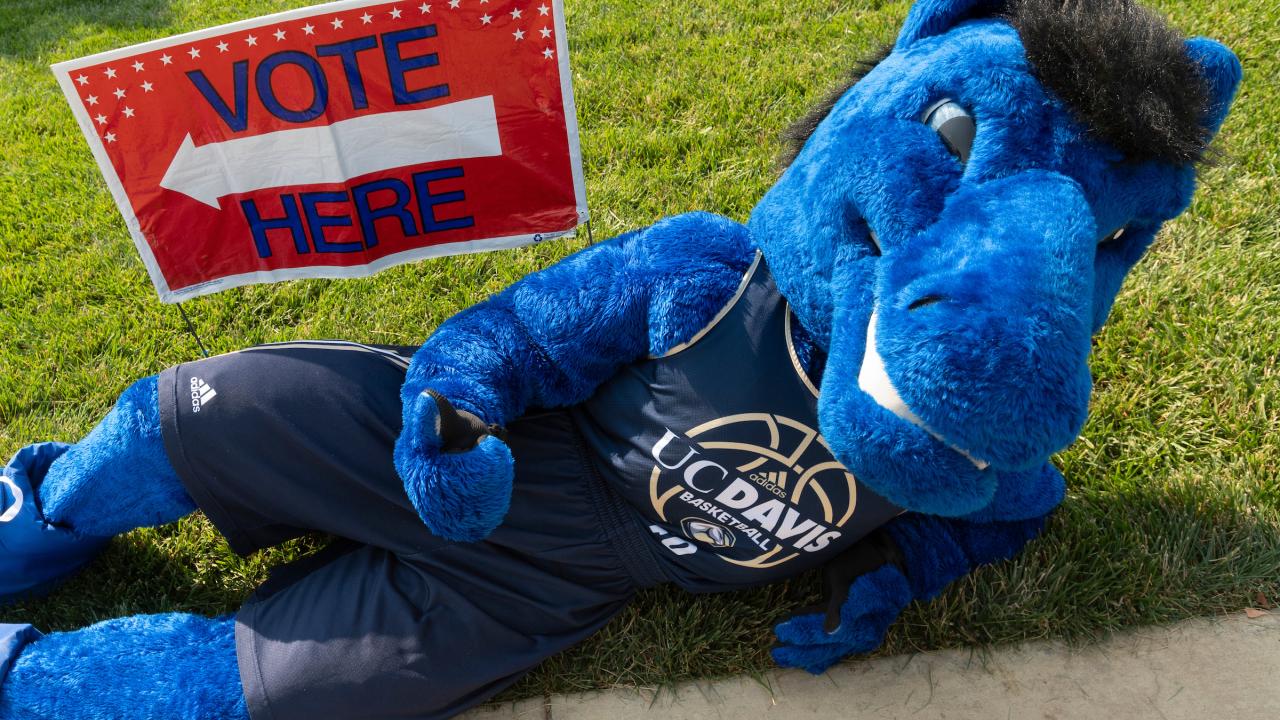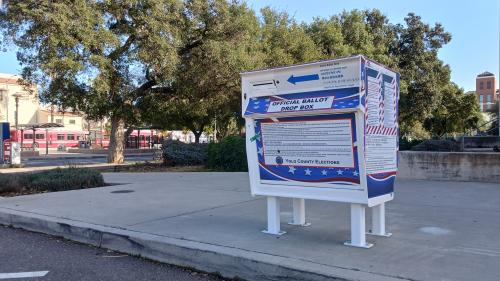
Elect your future leaders in the California primaries
The California primaries are underway! Election Day is March 5 and the Center for Leadership Learning hopes to help the undergraduate population feel confident in understanding the voting process.
The center’s mission is to “educate and cultivate the next generation of leaders who have a strong sense of self-awareness, can work effectively with others, and who are civically and socially engaged”. With these principles in mind, the center offers the following guide covering
- Why vote?
- Who can vote in the California primary election?
- When and where to vote?
- What’s on the ballot?
Not a resident of California? See the U.S. Vote Foundation’s list of election dates for other U.S. states.
Why vote?
Topics like gun policies, climate change, inflation and housing will be addressed in this year’s election. By voting for which candidates proceed from the primary, you determine the key topics for debate in the fall General Election. Primary elections across the country also set the stage for which leaders appear on the fall ballot, for positions like California senator and the U.S. president. As University of California students, we feel the impact of these leaders’ future decisions.
So, register to vote. Research the candidates. Make your voice heard.
Eligibility requirements
To vote in California, you must be:
- a U.S. citizen
- a California resident
- at least 18 years old
- not currently serving a state or federal prison term for the conviction of a felony
- not currently found mentally incompetent to vote by a court
If you moved recently, double check where you are registered as a voter. Updating your address ensures you receive your ballot by mail in a timely fashion and allows you to engage in local elections. Students living in Davis who want to engage in local elections should re-register to vote in Yolo County.
Register (and re-register) to vote at the California voter registration website.
Where to deliver your ballot

There are three ways to cast your ballot:
- Mail it to your county’s election office, no postage required.
- Drop it off at an official drop box or polling place, anywhere in the state.
- Vote in person at your county’s local polling place.
Looking for nearby ballot drop-box locations, or in-person voting centers? Check out Yolo County’s informative map, which includes hours of operation.
Important dates
- Register to vote by Feb. 20.
- Missed the deadline to register? You can still vote! Register as a same day voter.
- Vote in person starting Feb. 24 at select locations.
- Vote (by mail or in person) by March 5.
- Mail-in ballots must be received by March 12.
What’s on the ballot?
One state-wide proposition
The proposition addresses mental health laws — how much funding will be provided, and where funding will go.
*California Senate: representatives for odd districts
The state Senate forms the upper chamber of the California legislature. Senators work with the governor to create laws and establish a state budget. Senator duties include passing bills, setting levels for state spending and raising and lowering taxes.
*California Assembly: representatives for all districts
The state Assembly is the lower chamber of the California legislature. The duties of assembly members resemble those of senators, although term lengths and election cycles differ.
*U.S. House of Representatives: all seats
The U.S. House of Representatives is one of two chambers that make up the U.S. Congress, which has authority over enacting legislation and declaring war. House-specific powers include initiating revenue bills, impeaching federal officials and electing the president if an Electoral College tie occurs.
*U.S. Senate: two seats
The U.S. Senate makes up the other half of the U.S. Congress. Senate-specific powers include confirming presidential appointments and providing advice and consent to ratify treaties.
*These elections are open primaries, which means voters may elect any candidate, regardless of party affiliation. The top two finishers then move on to the General Election in November.
The presidential primary
California conducts a modified-closed primary, which means that voters can only select presidential candidates who are aligned with their registered party. However, an exception exists for those registered as no-party-preference (NPP) voters. These ballots do not include presidential candidates, but NPP voters can request a crossover ballot for certain parties.
The following parties allow crossover voting: American Independent Party, Democratic Party and Libertarian Party.
Registered party voters who would like to vote in the presidential primary for the Green Party, Peace and Freedom Party or the Republican Party must re-register to vote as a member of that party.
For additional resources, see the Aggies Vote page created by the UC Davis Division of Student Affairs.
